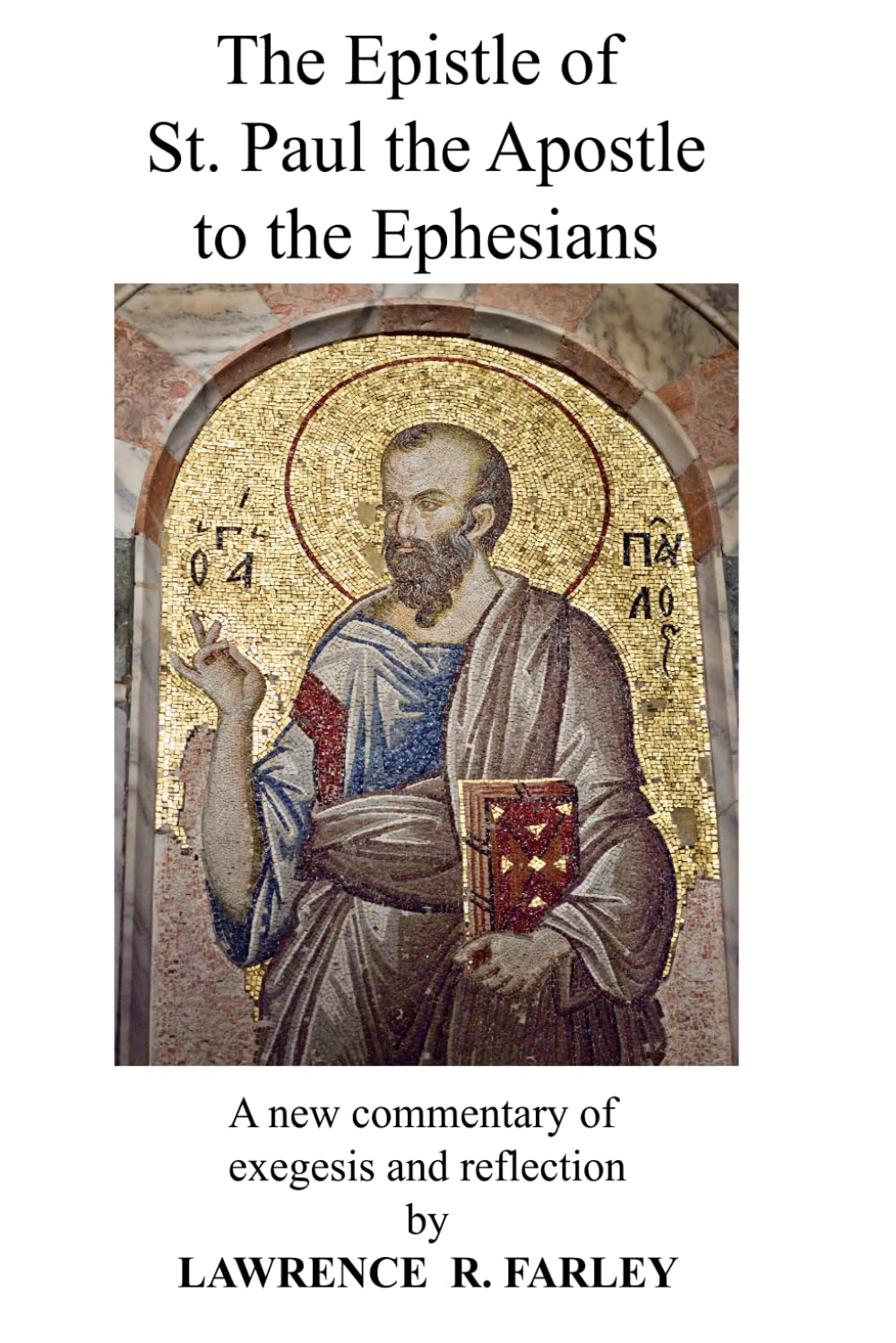
Those very familiar with my work may know that I have written commentaries on every book of the New Testament, published by Ancient Faith Publishing as The Bible Study Companion Series. One volume of that series was “The Prison Epistles” published in 2003 and consisting of commentaries on Paul’s letters to the Philippians, the Ephesians, the Colossians, and to Philemon. The entire volume was 216 pages total and the commentary on the Letter to the Ephesians was 76 pages long. Like the rest of the Bible Study Companion Series, the commentary consisted of concise comments on the text with no footnotes or theological reflections. It was intended to be a quick examination of the Biblical material to help with personal Bible Study.
Over the years I have felt a need to dig deeper into the material, examining the text more minutely and in dialogue with the recent scholarly commentaries. Though the Bible Study Companion Series constituted a basic introduction to the New Testament, there was still room for a work aimed at those who wanted to linger on the text and dig into the details.
I also felt that there was a need for extended theological reflection not possible in the original commentaries. Take, for example, St. Paul’s teaching about the submission of wives to their husbands in Ephesians 5. Such a teaching is controversial in some feminist circles and misunderstood almost everywhere, and this necessitates an extended theological reflection upon what such submission involves (and does not involve) and its underlying rationale.
Or take, for example, St. Paul’s teaching about the demonic world-rulers in the heavenlies in Ephesians 6. Many people today assume that a belief in demons and evil spirits is absurd, a relic of the superstitious Middle Ages when everyone believed (supposedly) that the world was flat—understandable in the ages of ignorance, but completely unacceptable now. Such a bias needs to be addressed.
I have therefore written another commentary on Paul’s letter to the Ephesians that grapples with such issues. It is longer than the previous work runs to 130 pages. The greater length of the book reflects a different aim. It is not a revision of the previous work, which I hope will still serve its purpose as a basic introduction.
The present work examines the text in greater detail, and represents the fruit of my reading with the most recent scholarship (e.g. Lynn Cohick’s 2020 commentary in the New International Commentary on the New Testament series). This interaction with scholars of course necessitated a number of footnotes which, though I tried to keep to a minimum, ran to 118. Each section also includes a number of theological reflections, dealing with the material from a theological and pastoral perspective.
I hope you will like the new commentary on Paul’s letter to the Ephesians. A paperback version is available for $12.95 through Amazon here. A Kindle version for $4.40 is available here.
